|
Studies show the times when most people feel loved have nothing to do with receiving gifts. In fact, it's "micro-moments of positivity, like a kind word, cuddling with a child or receiving compassion [that] make people feel most loved." So while you enjoy exchanging gifts with loved ones this holiday season, also remember to express your love in other ways too.
Read this week's column in Jackson Hole News & Guide for ideas on how to express generosity and love in ways that are meaningful, and the brain science that backs this up. Wishing you and your family a holiday season filled with magic, connection, love and laughter! We buy gifts for our children out of the best of intentions. We enjoy giving to our children and watching their faces light up when they receive a gift. Yet it turns out that children value connection with their parents more than receiving physical gifts. Read this week's column in Jackson Hole News & Guide, the first of a two part series, exploring gift giving during the holiday season and how sometimes too much of a good thing can be, well, too much.
Jackson Hole News & Guide:
Consider this: If your child starts a fight with her sibling and you as the parent continuously run over and get into the mix, your child may be learning to connect with you by fighting with her sibling. One of the most important things to our children is their connection with us. Could our response of always trying to break up the fight, actually be part of the problem? Helping our kids learn how to live with someone who moves through the world differently from them is part of what helps them live well with their siblings. Once we have taught them some skills in managing conflict, sometimes the best solution is to let them work their disputes out themselves. Read this week's column in Jackson Hole News&Guide titled "Sibling rivalry teaches life long lessons" to dive into thoughts about sibling rivalry. In a recent interview, Meghan Markle bravely admitted that she was having a hard time as a new mother. This can be true for many new mothers, and it's hard to admit. As I write about in my recent article, women's self-esteem often declines after the birth of a baby. While this may not be the reason for Markle's challenges, as women we can struggle for a host of reasons when our lives are turned upside down with the birth of a child. Read this week's article in the "Jackson Hole Woman" section of the Jackson Hole News & Guide to explore mothers and self-esteem. Then I ask you to think about two things. Consider where your sense of worth comes from and how you can foster that in all areas of your life -- and accept yourself for who you are no matter what. Then also consider asking others, as Markle so appreciated being asked, "are you OK?"
Do your interactions with your kids open them up to conversation or shut them down? Read this week's article in Jackson Hole News & Guide to explore how we validate or dismiss our children's experiences.
Believing in our kids for who they are allows us to more easily feel confident that they will thrive no matter what comes their way. This has been the hardest article for me to write by far. It's about themes that stem from Felicity Huffman's letter to the judge hearing her case for paying to have her daughter's SAT scores altered -- the college admissions scandal revisited. It would be easy for me to write about how bad Huffman is, how egregious her crime was, and about her abuse of and inability to see her wealth and privilege. Those are all true -- and they have all been written about. Here I dive deeper into the larger social context because I want to examine the underlying social and cultural forces at play and how they might invoke deeper thoughts about our own personal lives in raising children.
What drives one to commit such a crime? This is what I investigate in this week's Jackson Hole News & Guide article. I barely scratch the surface in this short column, and many of my thoughts had to be cut due to space. I wonder what thoughts these ideas invoke in you? How do you feel about your kids going back to school? Happy to get your kids back into some structure? Sad to see the carefree days end? Transitioning back to school can bring some challenges. Read my latest article in Jackson Hole News&Guide below to consider some proactive ways your family can make this transition go more smoothly.
Ease back to school with at-home prep JACKSON HOLE NEWS AND GUIDE: I hate to be the one to say it but school is starting soon. While summer can mean the stress of finding childcare while parents work, it can mean different things to different kids: carefree days, outside play, sleeping late, summer camps, travel, camping and exploration. It can also mean summer jobs, taking care of siblings, and working around the house. For some, the lack of structure and routine can be challenging. Others relish this less-structured time, which allows for an opportunity to face and overcome challenges of boredom with surprising creativity. The value of unstructured, unsupervised play cannot be understated, yet transitioning from summer to school is not always an easy feat. Going back to school can be hard for tots through teens — and parents too! School start times call for a morning routine that works. Because sleeping late is no longer an option, bedtimes — and their routines — need to be adjusted. Homework combined with extracurriculars requires discipline and time management. All of it can mean tired kids. The structure and pressures of going back to school can make life feel busy and stressed — feelings none of us want to have. So much of having a harmonious family life comes from being intentional and proactive, so as we think about how life might change as school starts, let’s think about ways to alleviate some of the challenges before they start. Routines, routines, routines Routines can be a parent’s best friend when trying to help kids of all ages move through the day. Establishing — or reestablishing — a morning and evening routine helps everyone get out of the house — and into bed — on time. Allow your teens and ‘tweens to create their own morning and evening routines; no need to micromanage unless they make themselves or others in the household late, or their mood suggests they aren’t getting enough sleep. Give your elementary aged children as much independence as possible in establishing routines as well. Toddlers, preschoolers and school-aged children to whom this is new will need more support, but you can still bring them into the process. Support your child in listing all the tasks that need to be accomplished before leaving the house: getting dressed, eating breakfast, brushing teeth, morning chores, etc., and let your child choose the order. Make an art project out of creating a routine chart — draw pictures of the various tasks, use magazine photos, write the words for each job. Even if your child is preliterate writing the words will help them begin to see the connection between written words and pictures. Then laminate it so it is permanent and can travel around the house (clear packaging tape can be used as quick and easy laminating). Children are more likely to stick to a routine that they helped create, but don’t expect your child will seamlessly run through the routine chart on the first go. Teach your children the routine using the steps outlined in my May 29, 2019 Parent Talk column titled "Living with Children, Raising an Adult" and practice it before school starts. Make the routines fun and playful, though there’s no need for reward stickers. Simply crossing out each task with a dry erase marker might be exciting enough (as we all know how rewarding it can be to cross of an item on our own to-do lists). Acknowledge your children’s effort without elaborate praise or a blanket “good job.” For example, “Wow, you got through three steps in the morning routine all by yourself. Look how independent you are getting! Let’s see what parts are tripping you up.” If your child is balking at brushing his teeth, maybe offer a fun approach: “Do you want to stomp to the bathroom like a monster to brush your teeth or clank in there like a robot?” The nice thing about routines for both children and teens is that once they are established, you can let the routine be the teacher. You no longer have to nag, remind or boss. Really, it’s important that as the parent you let go here. If the routine isn’t working, calmly discuss with your child about how it can be adjusted. You can also let natural consequences be the teacher — if your child is late for school, let her suffer the consequences the school gives for tardiness. If your child makes you late for work or siblings late for school, perhaps he needs to give back time to those family members by doing their chores for the week (and also adjust his routine). Homework before screen time Revisit your rules about digital media use. Having and using a digital device is a privilege. In the real world, taking care of one’s responsibilities usually comes before — and enables us to have — privileges. School work, contributions in the home (chores), and community service are all responsibilities that need to happen before a child is allowed the privilege of using a digital device. Managing digital media use can be a slippery slope. Come to a mutual agreement and stick to it. Your child will know you mean business if you stick to your agreed consequence; for example, taking away the phone for a set time period if the rules are not followed. Set Goals Sit down with your kids and ask them what goals they have for themselves academically, personally, socially, and with extracurriculars. Do they have hopes and expectations for themselves? Do they understand what it reasonably takes to accomplish their goals? Be realistic with them and help them figure out what it is they need to do to get to where they want to be. Enjoy the remaining days of summer with your family. Spend some quality time together before the busy schedules resume. But also be sure to take a moment to talk intentionally with your kids about what going back to school will look like for everyone. A little bit of prep can go a long way to making the transition back into the classroom easier on everyone. We all want what's best for our children, yet wanting what's best can put a lot of pressure on ourselves to provide the "best" and on our kids to live up to it.
Read this week's column in Jackson Hole News & Guide to consider creating a vision for your family rather than wanting what's "best". This week's column in Jackson Hole News&Guide is about maintaining clear boundaries with our children and teens. How do you feel when you've set a boundary and then let it slip away? Perhaps your kids' arguments and emotions are too strong; you feel bad for your kids or feel you are being too "harsh"; or you don't have the confidence that your boundaries are well placed.
When we let our boundaries slide, often we feel depleted and resentful; deep down we know we aren't upholding our values and standards and we aren't teaching our kids skills they need to learn. Maintaining clear boundaries in a firm and kind way is respectful to ourselves as parents and to our kids. As parents we don't feel taken advantage of when we hold to our boundaries. For the kids, if we say what we mean and mean what we say they know, as Brené Brown says "what is OK and what is not OK." They know the "rules", what is expected of them, and how to move forward in the world. If we have boundaries that are often co-created, or steeped in our values, and hold to them, the arguments, nagging, and complaining will begin to decline. What a gift to the relationship we have with our kids! Of course our boundaries need to be reasonable - we want to give our kids the freedom to grow. They also need to be maintained with respect so that our kids want to adhere to them. If you start creating boundaries where none have previously existed, expect some push back from your kids at first. This push back will diminish over time if the boundaries are upheld with respect and understanding. Read more in my recent column in Jackson Hole News & Guide about how to create boundaries and the benefits of doing so. "Say it straight, say it simple, say it with a smile." 🙂 I’ve written a lot about the idea that hovering over or paving the way for our children does more harm than good for their long term development. This week's column in Jackson Hole News and Guide looks at this idea more specifically. We know what’s not good for our kids, but what does that look like in real life, and what can we do instead?
Studies show that people in their early 20s now often act more like teens, and young teens often act more like children. Why is this? This week's column considers how we can let our children and teens become masters of their own destinies, so to speak, in developmentally appropriate ways that teach them skills without us having to nag, remind, or do things for them. I will admit - I like to be in control. As a parent, this means I have to hold myself back on a daily basis from doing something for or saying something to my kids that undermines not only their ability to do things for themselves but also how they feel about themselves. It is a regular battle. Author and parent educator Vicki Hoefle suggests duct tape - for the parents’ mouth! Beyond ripping all the hairs off my upper lip, holding my tongue has become a daily practice that I am constantly working to master. Holding my tongue allows me to step back and think about what is really important as the end result of any given interaction I have with my kids. Again, in no way am I proficient with this -- it is a daily practice.
What is really important? That I teach my kids skills, that I have faith in their abilities, that I encourage them, and that I strengthen rather than fracture our relationship. How I react to and interact with my kids can build character strengths in my kids or tear them down. Read this week's column in Jackson Hole News and Guide to consider the idea that while we are living with toddlers through teens, we are actually raising an adult. This is the last in my four-part series on ideas that stem from the college admissions scandal. See below to find past articles in the series exploring our deep love for our kids, anxieties we may have about their future and how we can help our kids to grow into thriving adults. In thinking about this week's column in Jackson Hole News and Guide, I've found that it's really hard for me to not help my kids. In our house, we have expectations that our kids' morning routines are their own. This includes making their own breakfast and lunch. But sometimes they wake up tired; they don't given themselves enough time; they end up late for school. So what do I do? I help. I have no problem with this on the surface. I enjoy helping others. Yet my help with lunch making or putting dishes in the dishwasher is not allowing them to fully be in charge of their lives or learn what it takes to get somewhere on time. And honestly, since this pattern has become somewhat frequent in our house, I can become resentful. Resentful that I become the maid, resentful that I allow boundaries to slip.
This morning I said to my kids, "It's no skin off my back if you are late to school". I said this with kindness. Whatever consequences they receive from the school for being late is on them. I also said, "the problem is that it's really hard for me to not help, especially when we're all running around and stressed about being late". I told them I'm going to try really hard to stop helping in the mornings. This will be hard for me, and in reading this it may sound unkind. But because this problem keeps coming back in our house, my helping is not teaching them responsibility for their own lives. My family's morning routine is just a small example of the things we do for our kids that they are capable of doing for themselves. Where do you find the balance between helping your kids and holding them responsible for doing things for themselves, even if it means there might be consequences if they don't get it "right"? Read this week's column in the Jackson Hole News and Guide to consider the balance between helping our kids navigate life experiences and sheltering them from what life throws their way; and the fear and love that motivates us to do things for our kids. The recent college admission scandal brings up many thoughts on today’s parenting challenges. My newest column in Jackson Hole News & Guide is the third in a biweekly four-part series that explores our deep love for our kids, anxieties we may have about their future and how we can help our kids to grow into thriving adults. I've been thinking a lot about my recent column in Jackson Hole News & Guide titled "Think who, not what, you want your kids to be". Take a minute and think -- what is most important to you in your child's development as they launch into adulthood? Does it stem from values and internal character traits, or does it stem from external forces and material gains? There can be arguments for the value of both; and often in today's world it can be easy to overlook the internal traits for the external gains.
While the title of the article speaks to the importance of our kids' character, the article is mostly about our fears and worries about our kids' futures. I know all too well that our fears and worries can come up when we focus on who our kids become just as much as when we focus on what our kids become. The point is that relaxing about our kids' futures might be the best way for them to not only thrive but to also allow their own identities, hopes and dreams to emerge. The recent college admission scandal brings up many thoughts on today’s parenting challenges. This week's column is the second in a biweekly four-part series that explores our deep love for our kids, anxieties we may have about their futures and how we can help our kids to grow into thriving adults. Read my latest article to ponder these ideas more - and check out my newest class "Raising an Adult" if you want to explore these ideas in your family. I love my kids. Yet the degree to which I shelter my kids from life's challenges, or do things to make life easier for them, is not necessarily a measure of my love. I've found that loving and letting go, witnessing failure and despair, and withholding my opinions and advice can be extremely hard. Yet doing this with kindness and support shows my kids that I am there for them and that I trust in their abilities, that failure is OK, and that they are capable of getting back up again. By no means do I excel in this - it is a continuous practice.
The recent college admission scandal brings up many thoughts on today’s parenting challenges. My recent column in Jackson Hole News & Guide is the first in a biweekly four-part series that explores our deep love for our kids, anxieties we may have about their future and how we can help our kids to grow into thriving adults. What thoughts do you have about the college admissions scandal? Are there areas where you could let go a bit and hand over some of the reins to your kids? I know there are for me! Read my latest article in Jackson Hole News & Guide to ponder these ideas more - and check out my newest class "Raising an Adult" if you want to explore these ideas in your family. During my kids' school spring break my family and I spent five days backpacking through canyons of Escalante National Monument in Utah. We car-camped the night before our trip, and the minute we got out of the car to unload our gear, I felt the layers shed from all of us. A feeling of freedom and levity filled the air. The next day, as we descended into the canyon toward the Escalante River, the de-layering continued - the stressors of daily life slipped away. We laughed, reconnected, became playful. We all came back into ourselves.
Often I feel at best as a parent when I am away from home with my family. Read my latest article in Jackson Hole News & Guide where I ponder how we can retain our strong family bonds even while we are immersed in the busyness of our daily lives at home. Rarely do we talk about the challenging reactions and experiences we have as parents - yet we all have them! We worry that we will be judged, but we might feel more connected if we share our stories - both the good and the bad. Just as we laugh together at the crazy antics of our kids, we can also lend a listening ear and support one another when we are at our wit's end. Sometimes it's nice to hear these words from another parent: "I know, I've been there".
Read my latest article in Jackson Hole News & Guide to dive deeper into the idea that we all have hard times as parents, and wouldn't we feel more supported if we felt like we were all in it together? I was talking with a friend the other day about raising kids. We discussed how we as parents, myself included, can get triggered by our kids' behaviors and strong emotions. Many of us grew up with parents telling us to stifle our emotional responses - the real feelings we had to certain situations. Now that we have kids of our own, we find it hard to be around our kids when they express their true feelings in strong ways. Some of us grew up with parents who had strong emotional reactions of their own. They yelled or had otherwise angry outbursts. And some, like my friend, grew up with parents who never yelled.
How we were parented impacts how we parent. There is nothing wrong with us - or our parents. Living with another person whether they are 3, 13, or 23 can be challenging - especially if they don't play by the ordered, rational adult world we are used to. It is normal for us to feel triggered. Yet reacting strongly to these triggers does nothing to maintain a strong relationship or teach our kids how to manage their strong emotions. What is it you need to maintain calm so that you can respond to your kids and give them what they need in the moment? Read my latest article in Jackson Hole News&Guide to dive deeper into the idea that the first step in responding to our kids has to do with us - the parents. There have been countless times as a parent when I have thrown my hands up in the air with no idea of how to respond to my kids in certain situations. I often find myself turning to parenting books or online articles looking for ideas, but I can sometimes leave feeling more confused than when I started. The articles, often backed by evidence give me great ideas in theory, but don't always help me when I'm in the trenches with my individual kids, my individual triggers, and our individual interactions.
My latest article published in Jackson Hole News and Guide talks about parenting styles: strict, permissive, uninvolved, and authoritative. Parenting styles are determined by the balance of support you give and expectations you have for your kids - or the balance between how responsive and demanding you are. Research shows that kids who are parented in an authoritative way are less likely to engage in risky behaviors such as drug and alcohol use, report less depression and anxiety, do better in school, and score better on measures of self-esteem. But how do we get there? What does "authoritative" parenting look like in my individual situation? Read more in the Jackson Hole News and Guide. JACKSON HOLE NEWS & GUIDE: In my last column I talked about the simplicity of being present with our kids. Simple, yet not so simple.
Simple when there is ease in the situation and our interaction. Simple when we are having fun together, sharing an activity or cooperating on responsibilities. Not so simple when there is a power struggle, whining, talking back, not doing what we ask, dilly-dallying, or any other hair-raising behavior from our child. So what do we do in those times when it is not so simple? Many of the problems we have in our parenting lives involve what we might call “discipline issues,” in which we feel we need to correct or change our children’s “bad” or challenging behavior. When I ask parents in my classes what they think of when we talk about discipline, the two most popular responses are timeouts and punishment, but the root of the word means to teach. Read more in the Jackson Hole News and Guide. JACKSON HOLE NEWS & GUIDE: I have a folder in my computer files titled “What kids need.”
In it I file articles and research papers that talk about children’s outcomes given certain experiences. Along with the linear part of my brain that so wants a formula for parenting, some day I might dig through and synthesize those files to create the “Manifesto on Parenting.” Obviously I haven’t quite let go of my desire for a formula, despite my Oct. 10 column, “There is no formula you can use to parent.”... Read more here. I will admit: my kids’ use of digital media is a trigger for me. I’m not sure why – there were periods in my childhood where I watched 4 hours of TV a day. Still, I see my kids walking around the house or sitting on the couch plugged into their devices and it’s all I can do to hold back my judgment and nagging. What I’ve come to realize with much practice and patience is twofold: 1) our children’s use of technology affords them many learning experiences beyond what is immediately at hand, and 2) having clear and firm boundaries around their use preserves the relationship I have with my kids. Ok… there’s a third: I have to keep my use of digital media in check too... Read the full article published in Getting Smart and Education Week.
JACKSON HOLE NEWS & GUIDE: Ask yourself these questions: When was the last time you took a risk or tried something that was beyond your comfort zone? Did you dive right in, start by testing the waters, precisely measure all the angles or shy away from it altogether? What was the outcome of how you approached that challenge, and how did you feel about yourself after?
The level of confidence we feel determines how we answer such questions. Confidence is a belief in our ability to take risks, overcome challenges, and find mastery or success - even, and especially, after failure. While this article in the JH Woman's section of Jackson Hole News & Guide focuses on girls, many of the ideas about confidence apply to boys as well.... Read more here. JACKSON HOLE NEWS & GUIDE:
When I became a parent and my firstborn hit the age of having a will of his own, I wanted a formula on how to parent. I had been a wildlife research biologist. I took calculus in high school and college. My mind likes linear rules. Formulas are nice and easy. A+B=C. Parenting books and research articles on child development talk this way: Certain ways of parenting are correlated with certain positive outcomes in children. The science was there, so give me the formula. I soon realized two things: Children don’t know the formula and parenting is messy. While formulas can be used as a guideline, there are way too many variables. This was hard for me to swallow. We all want the best for our kids. We all want them to grow up to be the best versions of themselves. However you define it, we want our kids to thrive. While there may be some universals (like I hope my child grows up to be well-adjusted, kind and “successful”), our hopes and dreams for our kids and their hopes and dreams for themselves vary. So the question is, how do we help our kids get there? If there’s no formula, what do we do when we find ourselves held hostage by a 3-year-old’s screaming meltdown because she couldn’t have the red cup? What do we do when our teenager defies rules we set based on values we believe in? We as parents have to be quick on our feet. We have to be skilled at regulating our own strong emotions in response to our children’s behaviors. Most of us have little training in why a child behaves the way she does, how his brain functions differently from an adult’s, and how to work through challenging behaviors in a way that supports the child’s development. We are accustomed to a world that works with certain rules: order, rationality, consideration for others. Our children, whose brains are not fully developed until their mid-20s, are not always capable of playing in our ordered, rational world. Adding to that, we have to learn how to have a relationship with a being who is trying to gain his own sense of self, who wants to be independent, make her own choices, feel capable. So we bump heads, a lot. (But not always. Of course being a parent is filled with fun and laughter and awe as well.) There can be no formula because there are too many variables. Each parent-child pair will be different — different temperaments, values, goals, reactions, trigger points, stressors, cultures and life circumstances. In this column I will explore what it’s like to be a parent and raise a child in today’s world. I love my kids and we have lots of fun together. At the same time, being a parent has been one of the hardest roles in life I’ve had. I acknowledge that not everyone feels this way, and that every family context is different, but for those of us who do find parenting challenging, I don’t think it has to be quite as intense as we sometimes feel it is. As an educator and coach of parents I see my role as a guide. I want to help families feel more ease and harmony in their homes. I want kids to grow up to become the best version of themselves. My hope is to introduce families to ideas and perspectives, often backed by research; help them see the world from their child’s shoes; understand what their child is developmentally capable of; help parents adjust their reactions to support their child’s development; and guide parents in teaching their child the necessary skills to become a thriving adult in today’s world. I try to do this in an open, thoughtful, caring and nonjudgmental way. To that end I am embarking on a monthly column, where I would like to open a conversation so that you as the reader can participate. Send me feedback — thoughts on my articles, topics you would like me to discuss, scenarios with your child you would like to hear about (all identifying details will be changed so that confidentiality is maintained). Send me an email at [email protected], contact me at GrowingGreatFamilies.org or leave me a message at Facebook.com/great.families. While there is no formula, I believe there are some core principles that can apply across many families, and I bet you know what many of them are: Love your kids unconditionally, accept them for who they are, understand their world, hold them accountable, maintain reasonable limits, teach them the skills they need to live life when they leave the home. Stay tuned for a more detailed discussion. Until then, see if you can get into your children’s shoes, whether they are 3, 13, or 23, and try to understand where their behaviors are coming from. Parent Talk - a new monthly column in Jackson Hole News & Guide exploring what it's like to raise a child in today's world. My intention for this column is to discuss the joys and challenges of raising kids and to normalize our parenting experience. Two things can be true: we love our kids, and parenting can be hard. We readily talk about the successes, antics and fun we have with our kids. However, we rarely talk about the challenges, and our strong (and normal) reactions to our children’s challenging behaviors, except behind closed doors or with close friends. We all want the best for our kids, and we all do the best we can to raise them. Living with another being who has desires, and ideas about how to go about getting them, that are different from ours can throw us curve balls. Especially when that being is still developing capabilities for emotional regulation, impulse control, and social-emotional skills.
My hope is to provide guidance to parents and caregivers when those challenging times seem overwhelming - or so they don’t become that way. My hope is to elevate and empower families so they can feel harmony in their relationship with their kids and to help kids grow up to be the best version of themselves. I do this through teaching classes, leading workshops customized to individual groups, and offering individual family consultations/ coaching. Join the community by commenting when it feels right. Send me your thoughts! Let me know what topics you would like to see covered and how I can better serve families in the greater Jackson Hole area. Join in the conversation and leave comments or message me about your thoughts and topics you would like to see covered. You can also email me at [email protected]. Many thanks to Jackson Hole News & Guide and Melissa Cassutt for giving me this opportunity! You can find more at www.GrowingGreatFamilies.org or find me on Facebook. |
AuthorRachel Wigglesworth has an M.Ed. in Parent and Family Education and is excited to explore the world of raising children with you! Archives
August 2022
Categories |
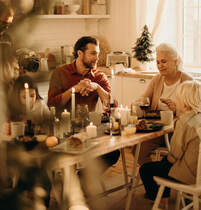

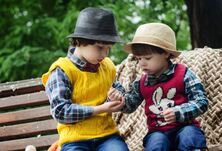



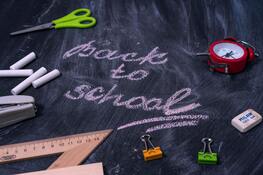

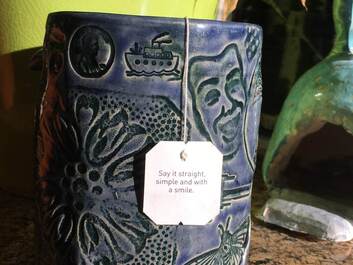









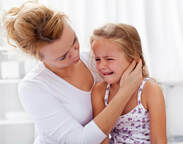
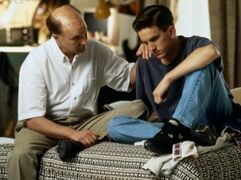
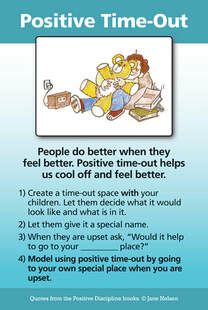

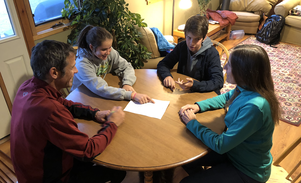


 RSS Feed
RSS Feed
